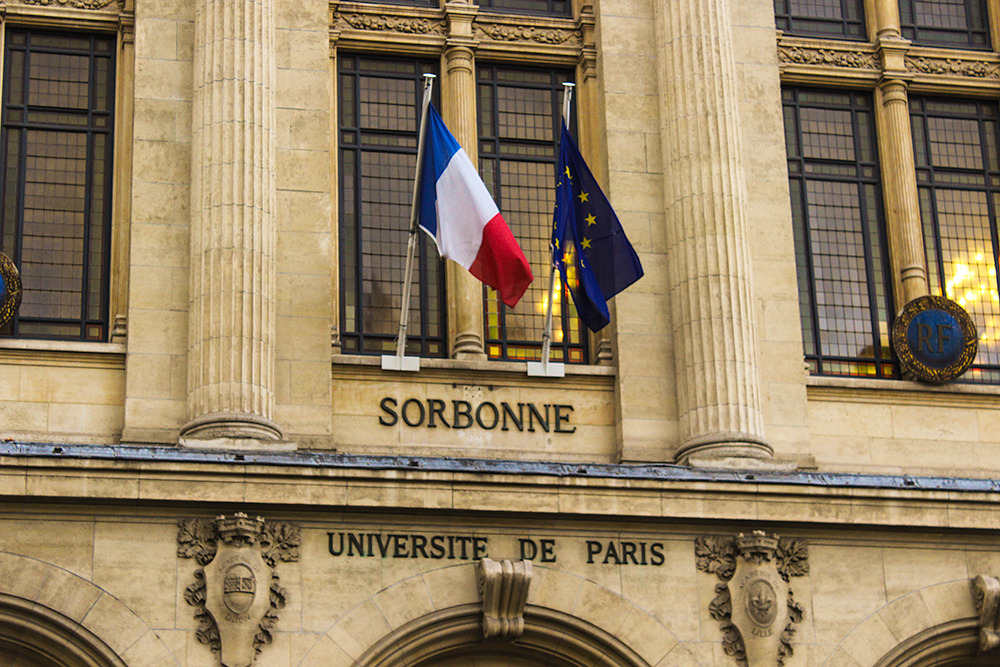
Unhappy Union
Sir: John Power is correct about George Abaraonye, the president-elect of the Oxford Union (‘Violent opposition’, 20 September). Abaraonye appears to advocate that most extreme form of censorship: the bullet. As such, he poses an existential threat to the Oxford Union, which for 250 years has been a beacon of free speech for the world. Invited speakers are dropping out. Donors to the much-needed building repairs appeal are snapping shut their chequebooks. Freshmen with a belief in free speech and open debate will not join.
If Abaraonye cared about the institution, he would resign. Evidently, he cares not one jot. He seems to want its destruction. For this reason, he must be removed as soon as possible.
David Soskin
Ex-president, Oxford Union Society (1975)
Petworth, West Sussex
Première classe
Sir: As a former UCL student, I can attest to the validity of the commentary presented in your leading article on British university education (‘State of the Union’, 20 September). Now a student at the Sorbonne in Paris, I have observed how France has supported a more pragmatic policy on education despite the same zeitgeist of ‘illiberal progressivism’.
My own programme for a classics degree demands 20 contact hours each week. This includes several three-hour seminars, from which three unjustified absences result in an automatic fail in the module. Medical justifications require a doctor’s note, with spurious excuses such as stress not accepted. Remote studying is not a recognised concept. Classes are not by default recorded and lesson material distributed in class is often not available online. Students are examined on the totality of the curriculum by way of regular handwritten assessments and finals. Candidates must achieve a minimum average mark of 10/20 across all of these in order to pass into the following year.
All students are expected to be proficient in written French and are penalised for errors in orthography and syntax. Those in the liberal arts are obliged to take modules in both French literature and linguistics.
Such pragmatism is indeed taboo to a permissive university culture in Britain which appears to operate under its own sort of Aristotelian wisdom: ‘Give me the man when he is 18 and I will show you the child.’
Luke Markham
Paris
In another league
Sir: Your leading article – which at one point mentioned the correlation between a university education and potential earning power – reminded me of an amusing incident. Many years ago I was a senior research fellow at Harvard when the university increased the undergraduate fees to $8,000 per annum (I think). For comparison, my salary at the time was $17,000. The TV cameras went to Harvard Square to assess the reaction. One student was asked if he thought the education at Harvard was worth $8,000 a year. ‘The education ain’t, but the degree sure is,’ he replied.
David Clarke
Yarm, North Yorkshire
Sedimental value
Sir: As an exploration geologist who built a successful career exploring for and establishing the feasibility of developing a large number of energy deposits, I take issue with Charles Hendry’s letter (20 September). The UK’s huge shale gas resources are as yet unexplored. Any project would need to show that its shale gas had a market and that it could feasibly supply this market competitively. If not, it would not be investable and it would not be developed. It is rather worrying to find that a former energy minister has so little grasp of how energy markets work.
David Watt
Brentwood, Essex
Jumping ship
Sir: I understand now, if I didn’t before, why so many voters have so little respect for politicians. Danny Kruger demonstrates this clearly in his interview with James Heale (‘There’s no going back for the Tories’, 20 September). There is little evidence today to support the idea that being an MP has anything to do with service. Kruger quotes Edmund Burke – ‘where there was a meaningful crisis, he was a fighter’ – but himself shows no inclination to follow that path. If he’s so disappointed with the party he was elected to serve, he should have done the honourable thing and used his skills to help put it back on the course he feels it should be taking, not just jump ship to somewhere he feels will be more profitable for him and his image.
Politics these days seems to be far more about what you can get out of it rather than what you can do for the party and those who voted for you. To leave is bad enough, but to put the boot in at the same time says more about the man than about the party.
The Revd Anthony Bush
Dorchester, Dorset
A lesson in stoicism
Sir: Dan Hitchens’s article about assisted suicide (‘Death by default’, 13 September) made for desperately sad reading. But he is quite right to label the bill ‘a gigantic abdication of responsibility’. Visiting my poorly grandmother this week in hospital, I was struck by her stoicism in the face of suffering. Determinedly she said: ‘I’m not ready to meet my Maker yet.’
While I prayed with her, I was reminded of truth from James’s epistle: ‘Consider it pure joy, my brothers and sisters, whenever you face trials of many kinds, because you know that the testing of your faith produces perseverance.’ My granny deserves to be cared for and supported through her tribulations, not tossed on the scrapheap.
Sam Finniear
Guildford, Surrey
Write to us
The Spectator, 22 Old Queen Street, London, SW1H 9HP; letters@spectator.co.uk







Comments